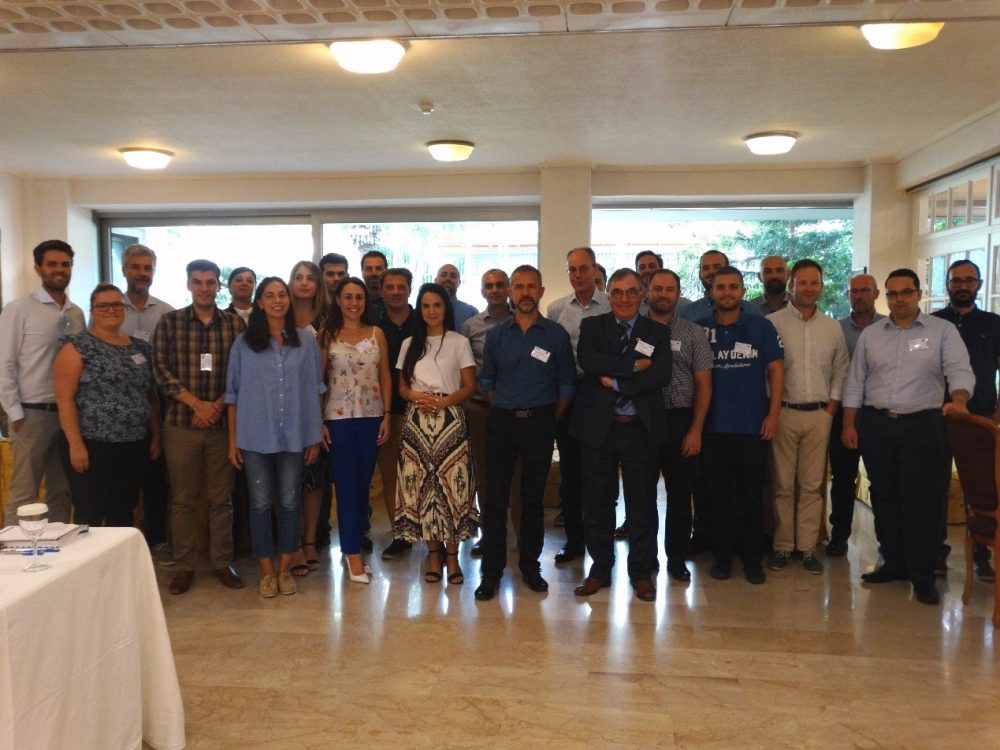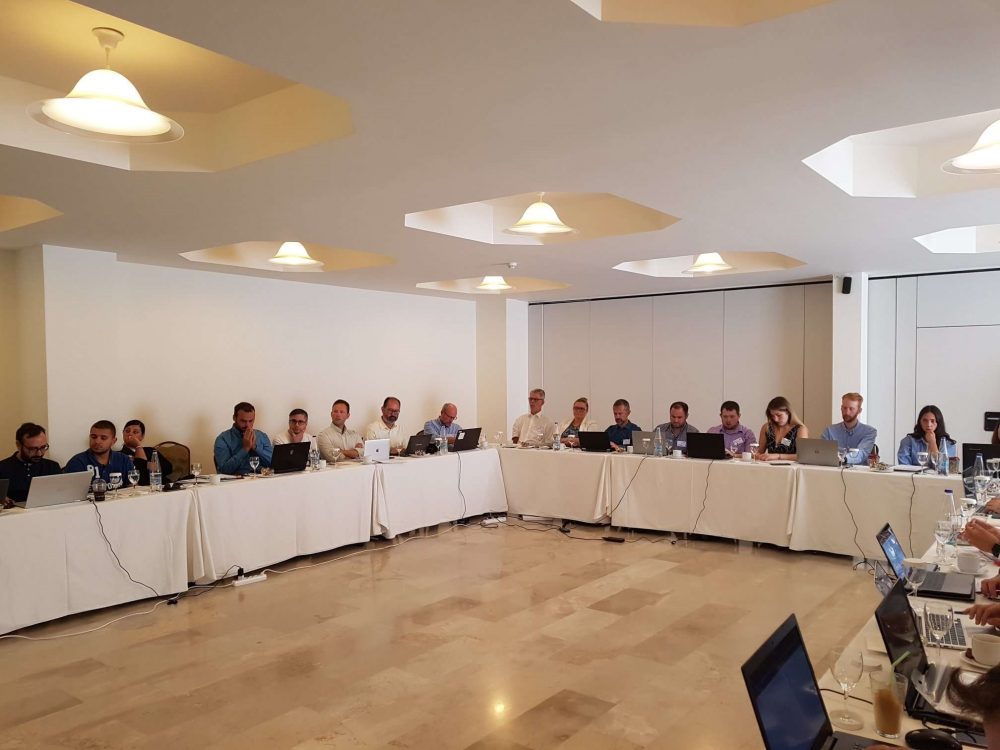The SafePASS project: An EU funded project that is expected to revolutionise emergency response in passenger ships via ‘smart’ devices and novel Life Saving Appliances.
SEABility cyprus is delighted to announce its participation in the eagerly awaited SafePASS project, officially launched in Athens, Greece on 10th and 11th of September 2019. The ambition of this European Commission-funded H2020 project it to bring disruptive change to the marine accident response onboard large passenger ships. SafePASS consortium, coordinated by the National and Technical University of Athens, brings together 15 partners from the industry, academia and classification societies from all over Europe. They all share the vision of making ship evacuation and abandonment safer, faster and smarter. The duration of the project is 3 years extending from September 2019 to August 2022.


SEAbility (Cy) is the leader of Task 2.1, related to the investigation of needs and gaps in the entire spectrum of passenger ship evacuation. SEAbility (Cy) is also actively contributing to the integration between the different components of the whole system. An eligible integration concept will be prepared in line with the use cases and processes defined and agreed in the relevant tasks and work package (WP2). This will assure the achievement of high Quality of Service (QoS) in data pipelines and processing services between the end-user applications and the SafePASS smart environment core platform, and seamless communication between all software components in integration activities. SEAbility (Cy), is actively participating in the analysis for the sociotechnical modelling and legal compliance framework (WP7) as well as in the SafePASS pilot development, validation and demonstrations (WP8).
Marine Accidents and Challenges
Marine accidents create the societal pressure for improving safety, but more importantly underpin gaps in our existing procedures, constraints in the capabilities of the existing life-saving appliances and the overall effectiveness of our current procedures and response to the risks posed by the evacuation process itself. The challenge, therefore, lies in the development of cost-effective solutions that will indeed reduce loss of life in case of an evacuation, regardless of the demographical characteristics of the passengers or the environmental conditions at the location of the accident.
To address, adequately, this issue, it is of paramount importance to, learn from experience, pursue international joint research initiatives that can lead to more widely agreed positions in the problem and invest on engineering and research innovations.
EU funding and SafePASS’s inter-disciplinary nature
The EU, appreciating the importance of a system capable of guiding passengers safely in case of an emergency, granted SafePASS approx. 8 million Euros. This funding will be distributed to SafePASS consortium for the purposes of developing ‘deskilled’ and high reliability evacuation systems for passenger ships of large capacities by taking into account social and behavioural aspects as well as extreme weather conditions. The SafePASS system will be tested by developing and implementing pilots and evaluated by quantifiable validation metrics.
Proof of the inter-disciplinary nature and potential of the project can be found in the activities of the partner’s and their leading roles in their areas of expertise. More specifically, the consortium brings together two world-leading LSA manufacturers (Survitec and Viking), one prominent cruise ship builder (Chantiers de L’Atlantique), one cruise line operator (RCCL), three EU research institutions (Maritime Safety Research Centre, NTUA, Trinity College Dublin), two IACS classification societies (DNVGL, Rina) and five industrial partners (EXUS Software, Diginext, Crowd Dynamics International, Telesto Technologies, SEAbility).
SafePASS Goal and Objectives
SafePASS system, aims to radically redefine the evacuation processes, evacuation systems and international standards for passenger ships in all environments by developing a combination of innovative systems that will collectively monitor, process and inform during emergencies both safety personnel and passengers of the optimal evacuation routes, coupled with advanced, intuitive and easy to use, lifesaving appliances that go beyond current state-of-the-art. The objectives of the project are summarised below:
- Development of a comprehensive post-incident approach from ALARM to RESCUE, including mustering and abandonment in the corresponding extreme flooding and fire scenarios that will lead to risk estimation and impact of appropriate risk control measures post-flooding/fire emergencies.
- Design and develop the next generation of LSAs for large capacity passenger vessels.
- Design and develop advanced evacuation support tools and methods that will radically improve evacuation operations while enhancing situation awareness on-board.
- Introduce an advanced platform, which addresses the safety needs of passengers during complex evacuation processes by identifying, designating and sustaining a Location-based Dynamic Evacuation Route that adapts according to current and evolving circumstances and guides passengers, while facilitating crew coordination.
- Provide social- and behavioural-driven solutions compatible with international legislation, standards & regulations (SOLAS, GDPR, etc.) and recommendations for future adoption.
- Validate and demonstrate SafePASS developments on industrially relevant environment.
More detailed information will be available in due time through the project’s dedicated web site at www.safepass-project.eu.
 SafePASS project has received funding from the European Union’s Horizon 2020 research and innovation programme, under Grant Agreement no 815146.
SafePASS project has received funding from the European Union’s Horizon 2020 research and innovation programme, under Grant Agreement no 815146.
